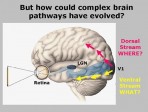 01:00:00
01:00:00
Plasticity of the brain: the key to human development.
How do our genes program the complexity of our brains? Why is human culture so much richer than that of the Great Apes? And how has human cognitive achievement continued to accelerate, when our genetic makeup has changed very little over the past 100....
More details | Watch now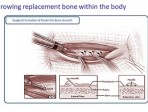 00:58:00
00:58:00
Regenerating organs and other small challenges
A disagreeable side effect of longer life-spans is the failure of one part of the body – the knees, for example – before the body as a whole is ready to surrender. The search for replacement body parts has fueled the highly interdisciplinary fiel....
More details | Watch now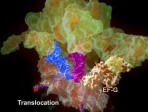 01:02:00
01:02:00
Reprogramming the code of life
The information for synthesizing the molecules that allow organisms to survive and replicate is encoded in genomic DNA. In the cell, DNA is copied to messenger RNA, and triplet codons in the messenger RNA are decoded in the process of translation to ....
More details | Watch now 01:00:00
01:00:00
Science not stamp collecting? Botany from 1759 to 2059
Professor Hopper considers the vital role that the study of plant taxonomy and systematics has played in plant science. He considers, in particular, how these fields are transforming to meet the needs of 21st Century science as we address the challen....
More details | Watch now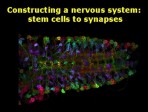 00:58:00
00:58:00
Stem Cells to Synapses
One of the goals of research in neurobiology is the repair and regeneration of neurons after damage to the brain or spinal cord. Before we can understand how to repair the nervous system we must first learn how the nervous system is put together.
More details | Watch now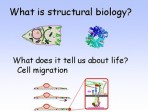 01:03:00
01:03:00
Structure and the living cell
In this lecture Iain Campbell will discuss methods of studying the structure of molecules and cells and how they have advanced in the 350 years since early microscopes gave the first glimpse of single cells. He will show how modern methods are allowi....
More details | Watch now 01:13:00
01:13:00
Targeting the human kinome: cancer drug discovery
This lecture discusses how the discovery of the Philadelphia chromosome provided the first example of a link between cancer and a recurrent genetic abnormality. This chromosomal translocation, which results in activation of the Abl protein kinase, re....
More details | Watch now 01:00:00
01:00:00
The great ideas of biology
Three of the ideas of biology are the gene theory, the theory of evolution by natural selection and the proposal that the cell is the fundamental unit of all life. A fourth idea is that the organization of chemistry within the cell provides explanati....
More details | Watch now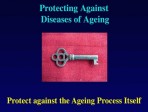 01:00:00
01:00:00
The new biology of ageing
Research into ageing has been rejuvenated by the discovery of mutations in single genes that extend the lifespan of laboratory animals. Some of the signalling pathways involved, particularly the insulin/Igf-like pathway, have effects on lifespan acro....
More details | Watch now 01:04:00
01:04:00
The origins of flowers
Flowers are such a ubiquitous and familiar part of our modern world that it is easy to take them for granted. But as Darwin recognized, the exquisite details of their structure and appearance have been shaped by evolutionary processes over millions o....
More details | Watch now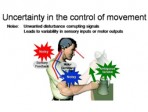 01:08:00
01:08:00
The Puppet Master: How the brain controls the body
The effortless ease with which humans move our arms, our eyes, even our lips when we speak masks the true complexity of the control processes involved. Professor Daniel Wolpert explains how the brain deals with this and can perform optimally in the p....
More details | Watch now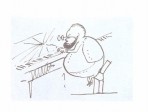 00:58:00
00:58:00
The Zoological World of Edward Lear
Clemency Fisher is Curator of Vertebrate Zoology at National Museums Liverpool. Edward Lear is most famous for his Nonsense Rhymes, such as “The Owl and the Pussycat” and “The Quangle Wangle’s Hat”, but he was also a talented zoological art....
More details | Watch now
